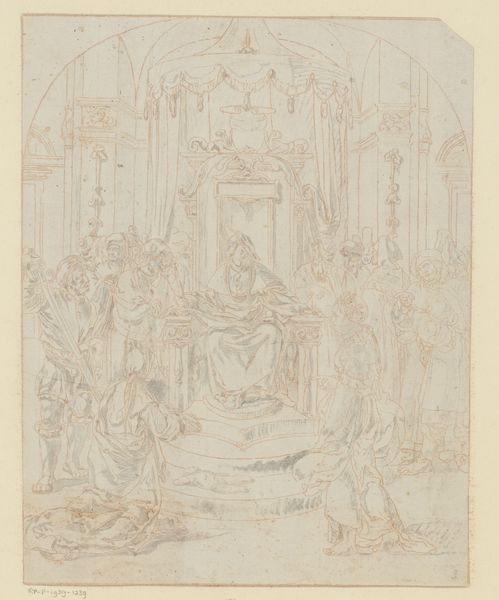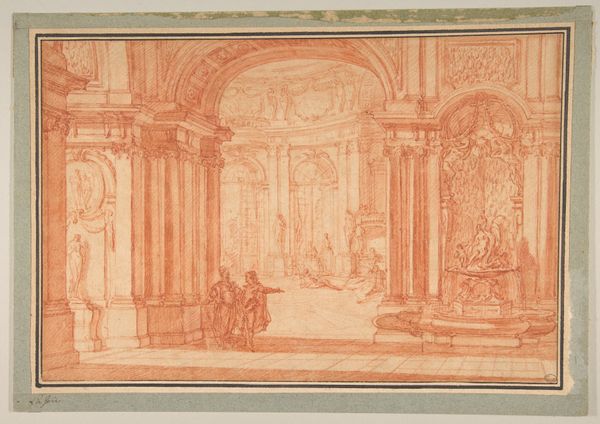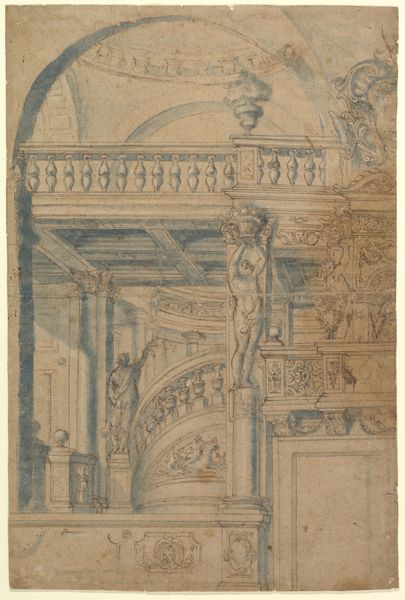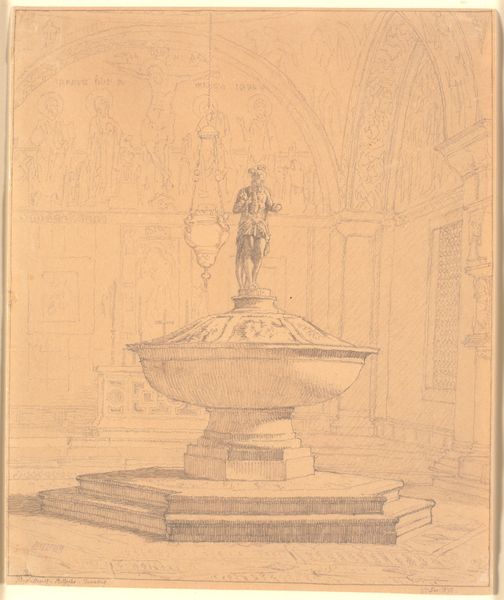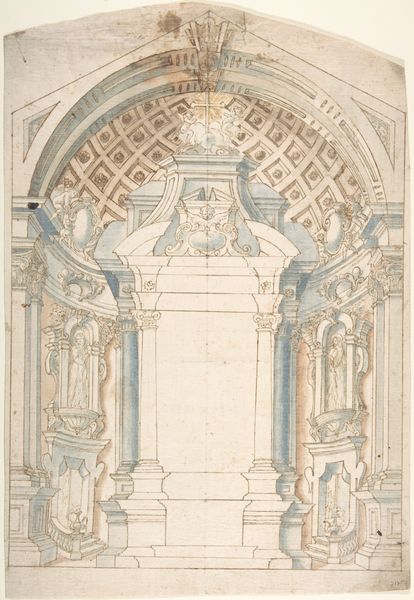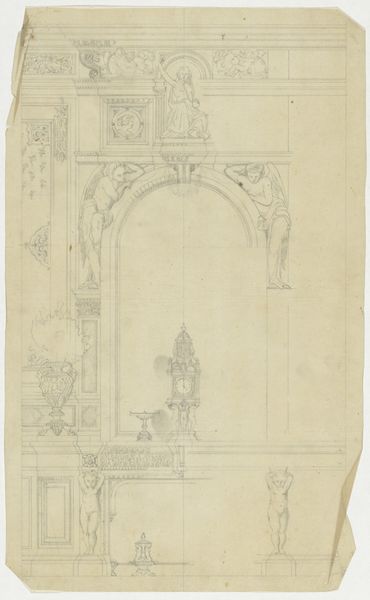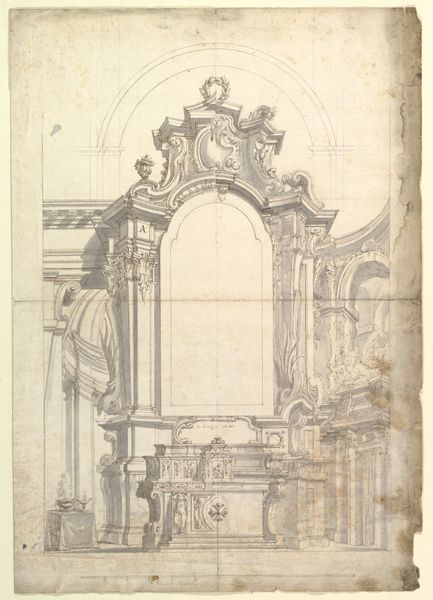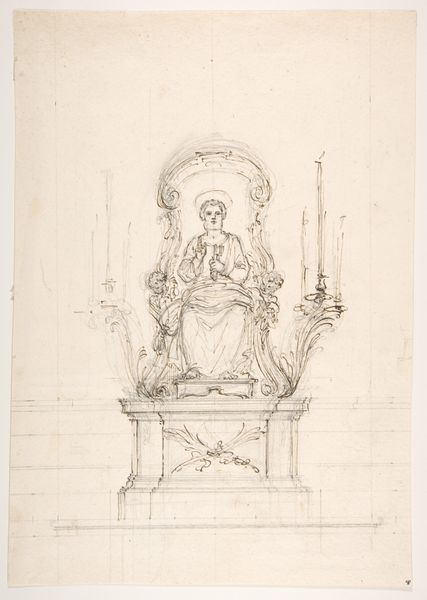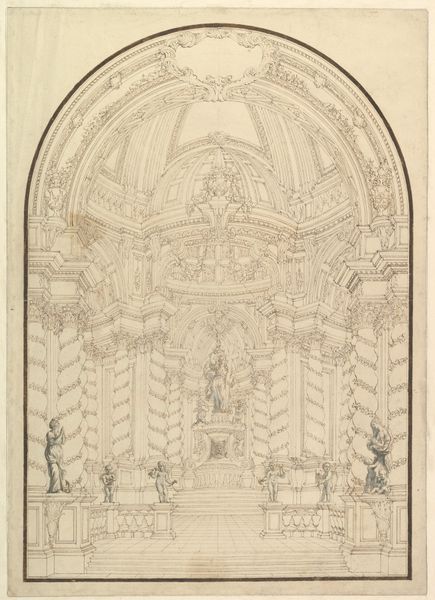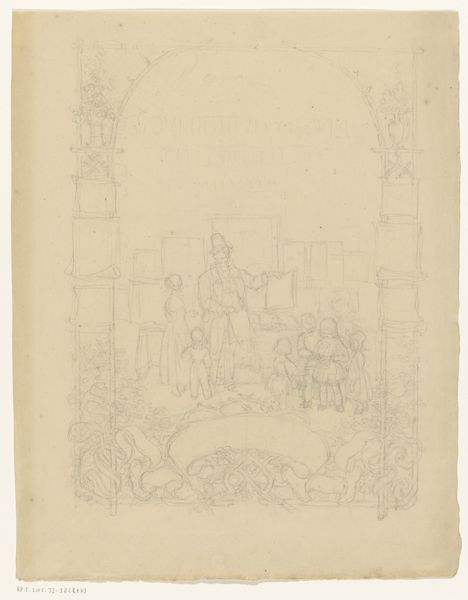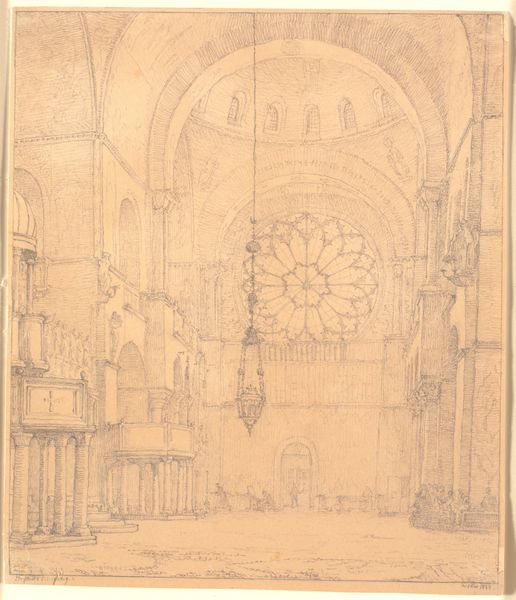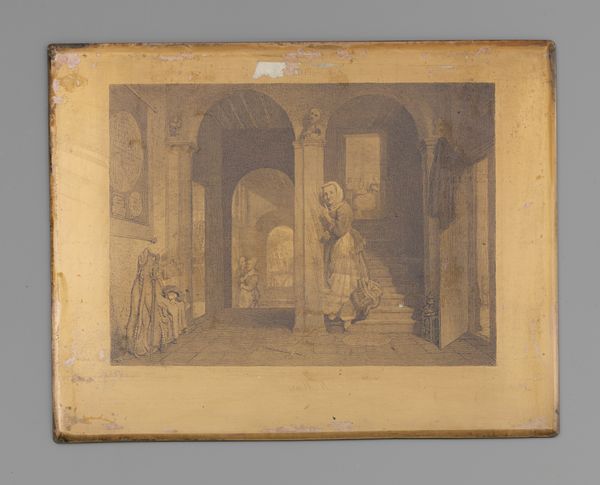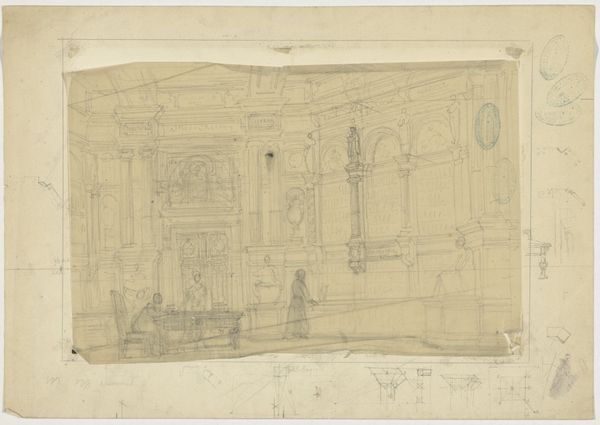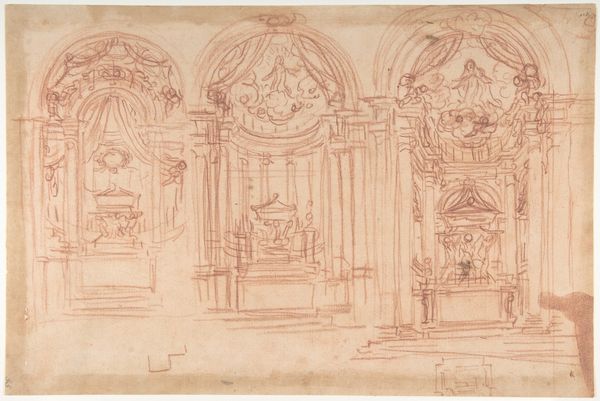
#
amateur sketch
#
toned paper
#
light pencil work
#
pencil sketch
#
sketch book
#
incomplete sketchy
#
personal sketchbook
#
detailed observational sketch
#
sketchbook drawing
#
sketchbook art
Dimensions: height 275 mm, width 400 mm
Copyright: Rijks Museum: Open Domain
Editor: This pencil sketch, "Interieur," attributed to Firma Feuchère, dates from around 1830 to 1850. It's quite delicate, almost ethereal. What do you see in this piece, especially regarding its portrayal of domestic life? Curator: Beyond the surface of a genteel interior, I see a subtle commentary on the constraints and performances of women's roles in the 19th century. Consider the careful arrangement of space, and how the figures are positioned. Does this domesticity empower, or does it subtly imprison? Editor: Imprison? That's an interesting take. I see elegance, but not necessarily confinement. Curator: But think about the visual language. The detailed architecture surrounding these women could be seen as representative of societal structures. Are they active agents in this space, or are they merely part of the decor? Are their identities shaped *by* the architecture itself? Editor: I see what you mean. It raises questions about their agency and how their identities might be constructed within these spaces. What about the 'unfinished' quality of the sketch? Does that have meaning? Curator: Absolutely. It's not just a snapshot of a room. This ‘Interieur,’ and others like it, invite conversations around the lived experiences of women and their restricted autonomy during this time, and perhaps about how those restrictions are symbolized through the arrangement of their physical surroundings. It's about the unseen structures shaping visible realities. Editor: It’s fascinating how a simple sketch can open up so many layers of interpretation, looking at gender, social norms, and physical space. Thank you. Curator: It’s in considering these layers that the true dialogue with art history begins. We must keep asking: Whose stories are represented and, importantly, whose are missing?
Comments
No comments
Be the first to comment and join the conversation on the ultimate creative platform.
